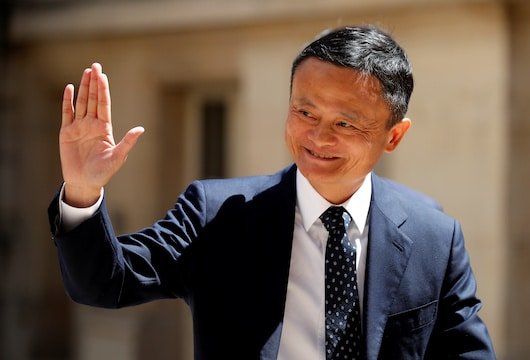
The fall from grace of Jack Ma in the eyes of China’s government has created an opportunity that may be replicated elsewhere should other tech tycoons get too big for their boots.
Alibaba shares have fallen almost 30% from their high of HKD309 set in October 2020 as regulatory pressure and the cancellation of the Ant Group IPO have badly soured sentiment.
However, the fundamentals of Alibaba remain strong with the Chinese economy coming out of the COVID slump far better than anyone else combined with the continuing shift of retail towards online transactions.
Unfortunately, Jack Ma made some comments at a conference that were critical of the Chinese banking and its regulatory environment that made someone within the CCP very cross.
The net result was a sudden change in regulatory rules such that the Ant IPO had to be cancelled until such time that it could comply with the new rules.
I do not think that this had very much to do with protecting consumers but instead was focused on reminding Jack Ma who is really in charge in China (see here).
This combined with increased regulatory scrutiny on Alibaba could potentially lead to large fines or even a forced break-up which is why the shares have sold off so heavily.
However, I don’t think that the China Communist Party (CCP) has any real interest in disrupting Alibaba’s progress or of the development of digital financial services in China.
First, digital finance:
The CCP, and all governments, to be honest, have an interest in seeing paper cash transactions go digital.
This is because digital transactions are much easier to track making both money laundering and ordinary transactions easier to identify giving a much better picture of who is doing in what within the economy.
Hence, I think that the greater degree to which online offerings like Ant Group penetrate the economy, the easier it will be for the CCP to monitor and control financial transactions within the economy.
Hence, disrupting the development of Ant Financial or Tencent’s financial services delivered through WeChat Pay makes no sense.
Second, e-commerce:
The Chinese retail experience remains a haphazard affair creating impediments to the emergence of the consumption economy that has been a major factor in China’s recent economic growth.
In the absence of elections, political experts are of the opinion that at unwritten bargain exists between the population of China and the CCP where the population gives up its freedom and the CCP delivers economic prosperity in return.
Alibaba has played a big part in enabling this prosperity by making it easier for consumers to buy the goods that they want.
I think that this is central to the Chinese agenda with the competitive issues facing the merchants the use Alibaba being less important at the moment.
Consequently, I think that the CCP has very little to gain from disrupting the development of Alibaba and is instead more interested in sending a message to the private sector reminding it who really is in charge in China.
Hence, I think that regulatory interference at Alibaba may result in a fine or two but nothing that is going to fundamentally damage the company.
Ant Group is another matter, and the mooted restructuring may substantially diminish the value of this company to both Jack Ma and Alibaba with the real value accruing to a new state-owned enterprise.
Hence, when looking at Alibaba, I am inclined to look at a scenario where the company pays a fine of $1-2bn but continues to operate as before and one where Ant Financial is worth $0 to Alibaba.
I also think that, like SoftBank, Alibaba will continue to defend its share price with share buybacks and it is taking advantage of the very low-interest rates to issue bonds that I think will be used to continue or increase this action.
This combined with signals coming from the USA that the harsh actions against Chinese companies are about to soften materially (NYSE U-turn on Chinese telecom de-listings etc.) is a bullish signal for the Chinese TMT sector.
Taking this scenario, I can see upside in Alibaba as it now trades at a significant discount to both its US peers and its main Chinese competitor Tencent. I have taken a small position with the intention to increase the position should the shares fall further from here.
I am also taking a serious look at the Chinese Telecom players which are extremely cheap with PER ratios of less than 10x and dividend yields in excess of 5%.
First published at Radio Free Mobile

Be the first to comment